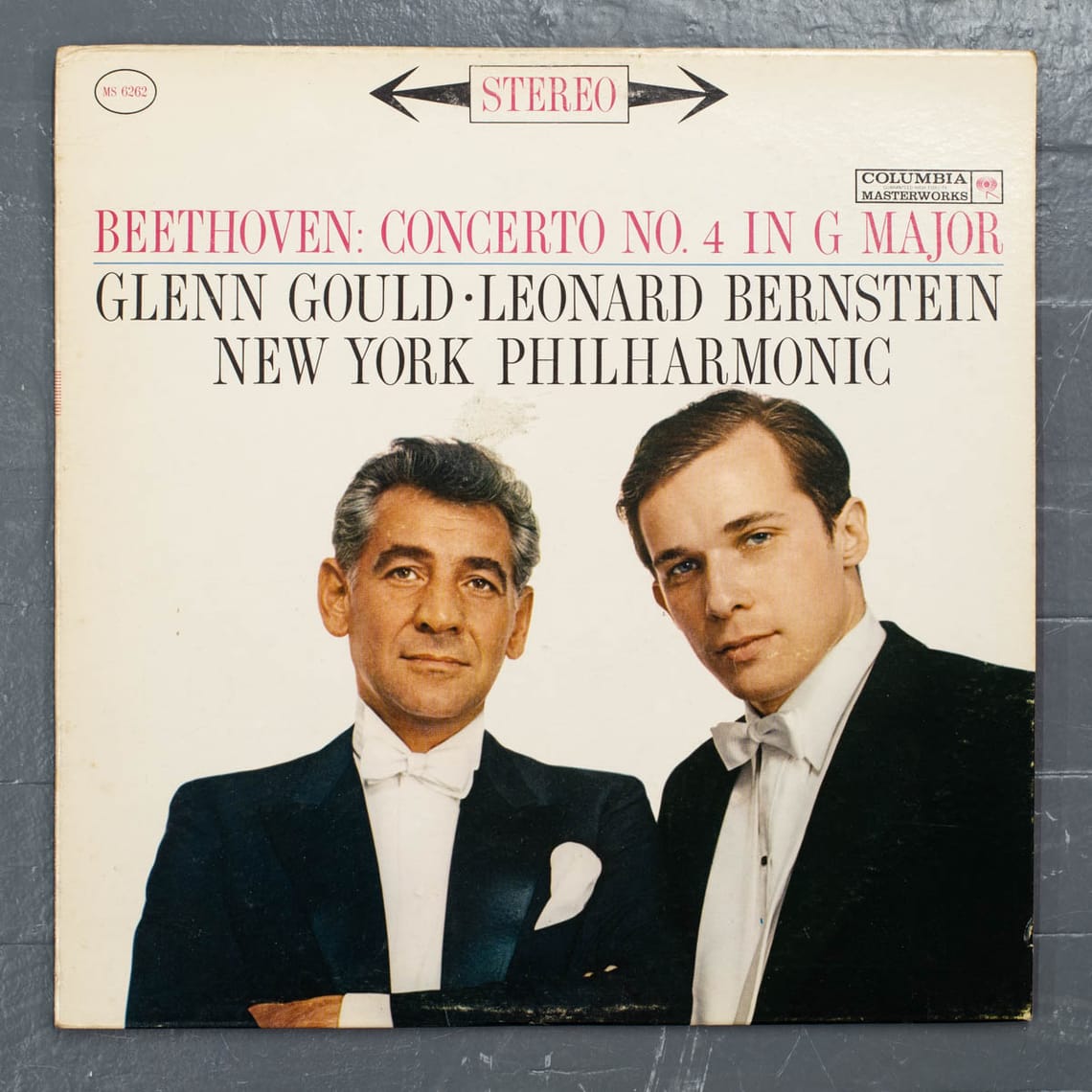
Leonard Bernstein & Glenn Gould
April, 6, 1962, the New York Philharmonic concert
Mr. Bernstein's introduction:
"Don't be frightened. Mr. Gould is here. He will appear in a moment. I'm not, um, as you know, in the habit of speaking on any concert except the Thursday night previews, but a curious situation has arisen, which merits, I think, a word or two. You are about to hear a rather, shall we say, unorthodox performance of the Brahms D Minor Concerto, a performance distinctly different from any I've ever heard, or even dreamt of for that matter, in its remarkably broad tempi and its frequent departures from Brahms' dynamic indications.
I cannot say I am in total agreement with Mr. Gould's conception and this raises the interesting question: "What am I doing conducting it?" I'm conducting it because Mr. Gould is so valid and serious an artist that I must take seriously anything he conceives in good faith and his conception is interesting enough so that I feel you should hear it, too.
But the age-old question still remains: "In a concerto, who is the boss; the soloist or the conductor?" The answer is, of course, sometimes one, sometimes the other, depending on the people involved. But almost always, the two manage to get together by persuasion or charm or even threats to achieve a unified performance.
I have only once before in my life had to submit to a soloist's wholly new and incompatible concept and that was the last time I accompanied Mr. Gould.
But, but this time the discrepancies between our views are so great that I feel I must make this small disclaimer. Then why, to repeat the question, am I conducting it? Why do I not make a minor scandal – get a substitute soloist, or let an assistant conduct it? Because I am fascinated, glad to have the chance for a new look at this much-played work. Because, what's more, there are moments in Mr. Gould's performance that emerge with astonishing freshness and conviction. Thirdly, because we can all learn something from this extraordinary artist, who is a thinking performer, and finally because there is in music what Dimitri Mitropoulos used to call 'the sportive element,' that factor of curiosity, adventure, experiment, and I can assure you that it has been an adventure this week collaborating with Mr. Gould on this Brahms concerto and it's in this spirit of adventure that we now present it to you."
